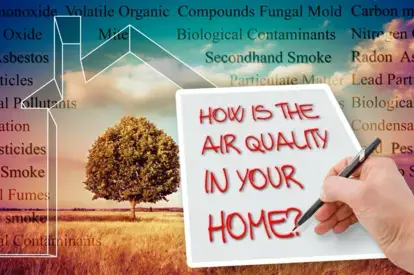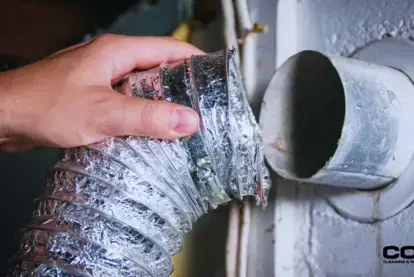
Protect Your Indoor Air Quality
Contact COIT for a professional cleaning!
At COIT, we believe that indoor air quality is an important aspect of any healthy home. Contaminants ranging from cigarette smoke to allergens to chemicals from paint or glues, or outdoor pollutants that travel through windows, can affect the quality of clean indoor air. According to the Daily Green, the U.S. Environmental Protection Agency estimates people spend 90% of their time indoors, but indoor air quality can be two to five times more polluted than outdoor air. So if you care about pollutants that can end up in your lungs, it’s just as important to guard your indoor air quality as the outdoor environmental air. The American Lung Association offers numerous tips for protecting indoor air, including:
- Don’t smoke indoors, and don’t let anyone else smoke indoors.
- Install carbon monoxide detectors to monitor your indoor environment for this deadly gas, and have your home tested for radon. Four hundred people die from carbon monoxide poisoning annually, and radon gas is the second biggest cause of lung cancer after cigarette smoke.
- Have your home inspected for asbestos, and have any asbestos professionally removed.
- Don’t idle your car or run the engine inside the garage. Burning gas or other fuels can release dangerous levels of indoor air pollutants and carbon monoxide.
- Use Low-VOC (volatile organic compounds) paints. Many paints release trace amounts of gases for months after application, even after that “new paint smell” has disappeared.
- Have your home inspected for lead paint. If lead paint in found but is in good condition, it might be best not to disturb it (consult an expert for advice). Any lead paint removal should be handled professionally.
- Fix leaks. The connection between leaky faucets or pipes and air pollution might not be obvious, but moist environments are a breeding ground for mold. Dampness alone can cause wheezing, coughing, and asthma symptoms.
- If you use air conditioners and dehumidifiers, clean and service them on a regular basis according to manufacturer instructions. COIT offers Air Duct Cleaning services that will remove dust and other contaminants from your air duct system to help you improve your Indoor Air Quality. You can count on COIT to clean it up thanks to our professionals and our professional grade equipment.
- Fight dust mites in your home by maintaining humidity levels below 50%, vacuuming carpets and upholstery on a regular basis (in-between regularly scheduled professional carpet and upholstery cleanings, using dust mite resistant coverings, and regularly washing bedding in very hot water.
- Ventilate your home well. Open windows when safe and possible, and install venting for appliances and in unvented bathrooms. Make sure all vents connect to the outdoors. Fireplaces and wood or gas stoves must also be vented properly to the outside, because they can produce carbon monoxide, nitrogen oxides and fine particle pollution, and other toxic air pollutants.
- Avoid dry cleaning whenever possible, because of the chemicals used in most dry cleaning processes. Purchase clothing that can be laundered in a machine or by hand, and if you do visit a dry cleaner, choose one that offers eco-friendly cleaning, and air clothes outside for a while before you bring them indoors.
- Be aware of formaldehyde, which is a carcinogen and can be present in disinfectants, adhesive or bonding agents, insecticides, urea formaldehyde foam insulation and particle board. Choose urea formaldehyde-free building materials for any renovation.
- Avoid pesticide use by learning about Integrated Pest Management (IPM).
- Use eco-friendly cleaning products in your home.
- Don’t rely on air purifiers; they can help reduce the presence of some tiny airborne particles, but aren’t as effective against gases or humidity.
By paying attention to your Indoor Air Quality, you’ll be taking a big step toward keeping your family’s home environment clean and healthy.



